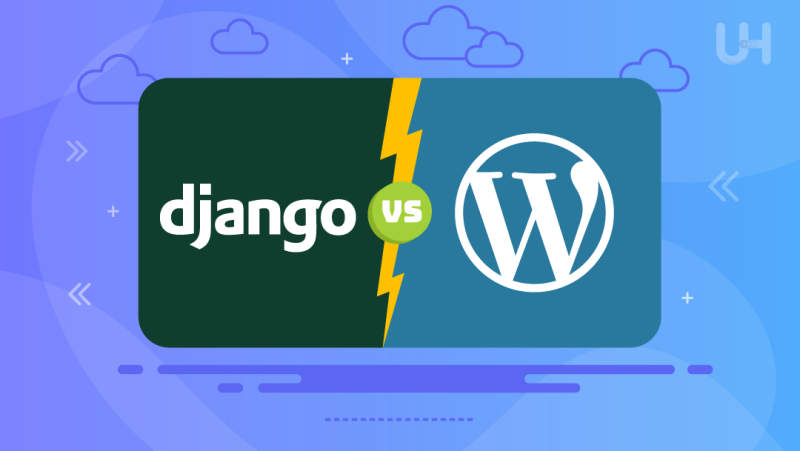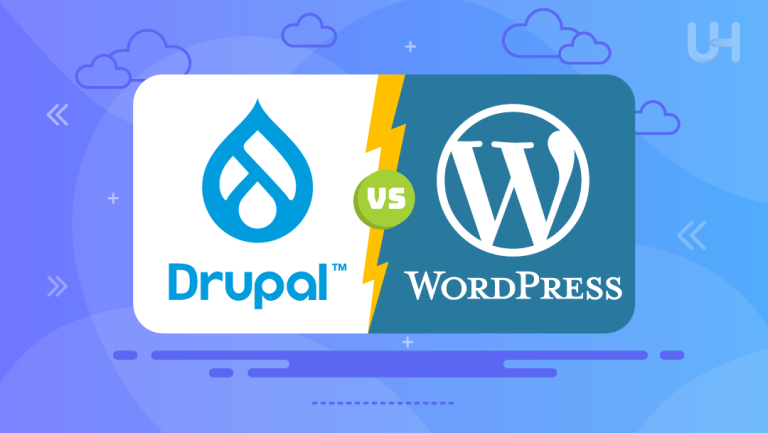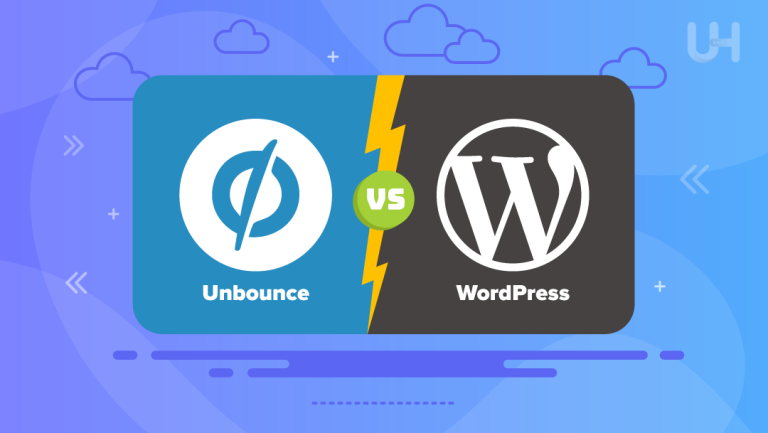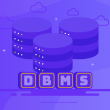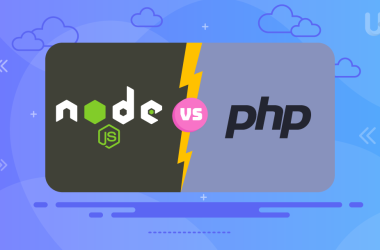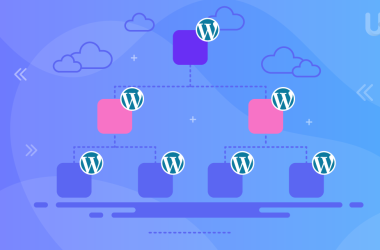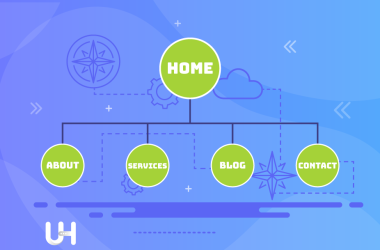Finding the right Content Management System (CMS) is a challenge in 2024. With so many interesting website builders on the market, choosing the right one requires some amount of research. So, given the choice between Django vs WordPress, which should you choose?
An intuitive website builder is easy to use, provides all the features you need to create a stunning and optimized website, and is scalable. In this article, we will compare two of the most popular CMSs in 2024 — Django vs WordPress — and help you make an informed choice.
WordPress vs Django: A Quick Overview
Django is an open-source website builder that allows users to customize content from the front-end builder. The CMS is written in Python, and web developers need basic knowledge to use the platform, which can be a barrier for most people.
WordPress, on the other hand, is an open-source CMS that does not require any technical know-how to operate. The functionalities are neatly labeled, and the platform has an excellent plugin database for all your customization needs.
From live chat plugins that allow users to communicate with visitors in real time to SSL plugins to protect websites against malicious attacks, WordPress plugins perform a wide range of operations without coding.
Django: Key Features and Functionalities
Django is a robust backend web framework that provides all the tools necessary to create a responsive website. These are its key features.
- Open-Source: Django it is an open-source platform that anybody can use to build spectacular websites from the ground up.
- Secure: Django is one of the safest frameworks on the market. It provides built-in authentication and intuitive solutions to common security issues, such as cross-site forgery, CSRF attacks, and SQL injection.
- Scalable: Django is compatible with most shared and dedicated servers. Some of the world’s busiest websites are built using Django.
- Fully loaded: Django packs several exciting features, from user authentication and site maps to RSS feeds and more, right out of the box.
- Versatile: Django is one of the most versatile platforms today. Users can build a wide range of websites using the framework.
Pros
- Django is extremely capable and can scale up projects quickly and efficiently.
- The Django community is exceptionally vast and insightful. If you’re stuck on a code, browse the official forums, and nine times out of ten, someone has already solved the problem before you.
- Django has one of the best documentation sets compared to some of its rivals.
- The framework has built-in security protocols, so you don’t have to spend additional time adding lines of code.
Cons
- Django requires basic knowledge of Python, limiting usability.
- Adding custom codes can cause optimization issues, leading to slow-loading websites if you aren’t careful.
- Django is a higher-level framework that is best used for complex projects.
WordPress: Key Features and Functionalities
WordPress is an open-source CMS written in PHP and is suitable for building stunning and responsive websites. These are its key features.
- Free and Open-Source: While WordPress and Django are both open-source platforms, the former is more prevalent due to its user-friendly operation.
- Easy to Setup and Maintain: You can build and customize websites without technical knowledge. WordPress has plugins for almost everything.
- Scalable: WordPress sites are entirely customizable. You can install an intuitive extension from the extensive plugin directory or add lines of code in the admin panel.
- Multiple Hosting Options: WordPress websites can be hosted on your preferred servers, from self-hosted and shared hosting to dedicated servers and more.
- Built-in SEO: WordPress is search engine optimized right out of the box. You can optimize websites further using excellent extensions like landing page plugins, gallery plugins, FAQ plugins, and more.
- Versatile: Although WordPress is primarily a Content Management System, you can use it to build any website, from business websites and portfolios to e-commerce stores, blogging sites, and more.
Pros
- WordPress is easy to set up and customize
- It is flexible and scalable and has over 50,000 excellent plugins to choose from
- WordPress sites are responsive across devices
- You can create a diverse range of websites using WordPress
Cons
- Incorrect update installation may cause the website to crash
- Being an open-source CMS, WordPress sites are vulnerable to security breaches
Elevate Your Business with NVME WordPress Hosting
Whether you’re a business seeking reliability or an individual embarking on an online venture, our NVME WordPress Hosting solutions offer the power and flexibility you need for both Windows and Linux operating systems.
Django vs WordPress: Head-to-Head Comparison
If you are confused between WordPress vs Django and want to learn which makes more sense for your website, we have you covered. Here is a head-to-head comparison (Django vs WordPress) to help you choose better.
Ease of Use
WordPress is a beginner-friendly CMS that doesn’t require technical know-how to operate. Django, on the other hand, requires basic Python knowledge to use. With WordPress, you can build a website from the admin panel. Choose a built-in WordPress theme, find plugins for various functionalities, and optimize website media. And your website is ready for launch.
Beginners using Django should consider hiring a Python programmer to avoid long-term hassles. If you are taking the DIY route, you should have a clear image of the website’s final appearance.
Customization
WordPress and Django have built-in plugins and themes that can be customized to your needs. WordPress has an intuitive drag-and-drop builder and a user-friendly interface guiding amateurs through the process. From adding and rearranging content or media to inserting social share icons, SEO, and more, you can do it all using the visual builder.
Django operates pretty similarly. It has a drag-and-drop builder and numerous plugins for website customization. However, knowing Python helps if you want to go beyond the built-in options.
Design
With WordPress, designing a website is easy. You can choose from thousands of paid and free themes and use intuitive plugins to modify your website in any way you like. From the layout and font to the color combination and template customization, you have unlimited options.
Django, on the other hand, lacks a repository, meaning you need to create webpages from scratch. Built-in design choices are pretty limited. Therefore, it is better to create layouts from the ground up.
Content Publishing Tools
WordPress was developed with blogging in mind. Hence, the CMS is optimized for creating and publishing content. The interface and resources are easy enough for technical laymen to use, making it a more practical choice for amateur web developers.
Django is designed for more hardcore operations. Hence, the CMS offers primitive blogging functionalities. So, if blogging is your primary objective, WordPress is the better CMS for you.
Security and Performance
Since WordPress is widely used, it’s more prone to security breaches. Having said that, several excellent WordPress security plugins plug those vulnerabilities. You can also enable auto-updates to keep your security protocols up-to-date.
Django has the upper hand in terms of security. The CMS is built on a more robust framework and offers several extensions to bolster protection further. The platform prevents malicious attacks like SQL injection and cross-site forgery, keeping the users safe. You don’t need to update the widgets as frequently, reducing the chances of accidentally messing up the website’s layout.
Conclusion
So, in the battle between WordPress vs Django, the former is a clear winner in most situations. WordPress is easy to use, offers a vast plugin selection, is regularly updated, and can be customized with the drag-and-drop builder. However, Django is the more practical choice if you are experienced in Python and need to build a custom website. The CMS offers better protection against security vulnerabilities, making it a better option for enterprise usage.
Elevate your Django applications with limitless bandwidth, unparalleled flexibility, and superior performance with Ultahost’s Django Hosting. Enjoy unmetered traffic, free DDOS protection, and 24/7 support, starting at just $5.50/month.
FAQ
WordPress vs Django: Which is better?
WordPress is better for most applications since it is easy to use, does not require technical know-how, has a dedicated plugin directory with 50,000+ excellent widgets, is customizable from the admin dashboard, and is SEO-friendly from the factory.
Are WordPress websites more SEO-friendly than Django?
WordPress websites feature built-in SEO integrations. You can also use thousands of plugins for further optimization. Django, on the other hand, requires extensive manual SEO configuration.
Django vs WordPress: Which is better for beginners?
We recommend WordPress for beginners since it’s designed for non-technical users who want to create stunning websites using a drag-and-drop builder. On the other hand, Django requires basic Python skills, making it more complex for amateur web developers.
WordPress vs Django: Which is more customizable?
WordPress is more customizable since you can use the front-end builder to customize the entire layout. The WordPress plugin directory has over 50,000 widgets that streamline website building without coding skills.
Django vs WordPress: Which is easier to use?
WordPress is easier to use due to the drag-and-drop builder. The functions are neatly labeled, and the instructions are clear. Django, on the other hand, has a steep learning curve. You need to be a Python developer to explore its capabilities thoroughly.





